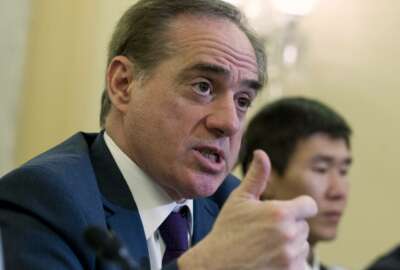
Telework, telemedicine, teletubbies: 5 early coronavirus lessons
It looks as if the coronavirus crisis might force some needed workforce reforms permanently.
In the stunned silence after the Sept. 11, 2001, attacks the prevailing attitude became that things would never be the same. In a large, rich and resilient country like the United States, that turned out to be sort of true, but only in discrete ways.
The coronavirus deal, in my mind, is as profoundly weird as anything I’ve personally experienced. A big difference between this and 9/11 is the diffusion of the threat.
For the federal government, lessons learned are already emerging. They might be obvious in retrospect. One respected boss I had many years ago liked to say that recessions and business downturns “teach the younger generation to turn the lights off.”
- Continuity of operations plans deserve real attention and periodic stress testing. One large department, within hours of its telework order, was arguing with telecom carriers over performance in support of all those VPN sessions. Agency management is responsible for making sure people have remote access to the resources they need. But employees must also “pack their own parachutes” with work spaces and other home accoutrements they need for personal COOP planning.
- Rules and regulations were made to be broken. The Food and Drug Administration, National Institutes of Health, and Centers for Medicare and Medicaid Services are among agencies that have relaxed or altered scores of rules for drug and testing approval, use of research grants, and federal benefits eligibility. Lurchingly, the Office of Management and Budget told contracting officers they could and should treat contract terms and conditions flexibly. Contractors are also forced into teleworking, lack access they ordinarily need to federal facilities, and risk key people coming down with coronavirus. Like it or not, many agencies cannot go on for long without their contractors.
- Some rules and regulations will be permanently changed. In my interview with former Department of Veterans Affairs Secretary David Shulkin on Monday, he pointed out that telemedicine adoption has been hindered not so much by technology as by “regulatory barriers and payment barriers.” As to the above-mentioned regulatory changes, Shulkin added, “Now that people see what can be done and how quickly things can move, I think these are going to be permanent parts of the way that we deliver health care.” Who wouldn’t want fewer trips to medical offices if you could get the care online and providers would offer their normal coverage? If only they could come up with a remote, non-invasive prostate check.
- Teleworking is neither a constitutional right nor a sure bet people are goofing off. It’s a tool, and now maybe federal employees and agency bosses will find some reasonable common ground on who should telework and how much. My personal feeling is the more people telework, the less the cohesion long term in the unit. But at times like these, mass telework is crucial. I’m the only one occupying our spacious Federal News Network facilities. Everyone else is teleworking. We’ve adapted with a lot of corporate support. It’s effective but with no end in sight, it’s no substitute for working physically alongside colleagues. I’ve always maintained, since you don’t know another person’s home situation, you can’t prescribe telework to everyone.
- Separating the important from the trivial is a lot easier. As calamity seems to widen all around, here’s one newspaper headline I spotted today: “Taylor Swift uses leaked Kanye phone call to raise money for hungry families, roiling Kim Kardashian.” Yeah everyone has trouble, but really? On the other hand, people need diversion, something to chuckle over. That newspaper is still delivered, and I’m addicted to the daily crossword puzzle, which I do using a sharp, #2 pencil.
Copyright © 2024 Federal News Network. All rights reserved. This website is not intended for users located within the European Economic Area.
Tom Temin is host of the Federal Drive and has been providing insight on federal technology and management issues for more than 30 years.
Follow @tteminWFED
Related Stories

OMB’s new coronavirus contractor guidance doesn’t answer some of the toughest questions





